Cell Reproduction -> conservation
Conservation
Conservation refers to the careful use and protection of natural resources in order to ensure their sustainability for future generations. It involves the responsible management of resources such as water, air, land, and wildlife to prevent depletion and environmental degradation.
Key Concepts
- Natural Resources: Renewable and non-renewable resources that are essential for the functioning of ecosystems and for human activities.
- Sustainability: The ability to maintain a balance between resource use and environmental protection to meet the needs of present and future generations.
- Biodiversity: The variety of life on Earth, including the different species of plants, animals, and microorganisms, as well as the ecosystems they form.
- Pollution: The introduction of harmful substances into the environment, which can have negative effects on living organisms and ecosystems.
Conservation Strategies
There are various strategies and practices that can contribute to conservation efforts:
- Habitat Protection: Preserving natural habitats and creating protected areas to safeguard biodiversity.
- Resource Management: Implementing sustainable practices for the use of water, forests, and other natural resources to prevent overexploitation.
- Waste Reduction and Recycling: Minimizing waste production and maximizing the reuse of materials to reduce environmental impact.
- Renewable Energy: Utilizing energy sources such as solar, wind, and hydroelectric power to reduce reliance on non-renewable resources.
- Environmental Education: Promoting awareness and understanding of conservation issues to inspire action and responsible behavior.
Study Guide
To deepen your understanding of conservation, consider exploring the following topics:
- Research a specific conservation project or initiative in your local area or a global context.
- Investigate the impact of human activities on biodiversity and ecosystems, and propose potential solutions.
- Examine the role of government policies and international agreements in promoting conservation efforts.
- Explore case studies of successful conservation programs and their outcomes.
- Discuss the ethical and moral considerations associated with conservation and the sustainable use of natural resources.
By delving into these areas, you can gain a comprehensive understanding of the importance of conservation and the various approaches to protecting our environment.
.◂Science Worksheets and Study Guides Seventh Grade. Cell Reproduction
Study Guide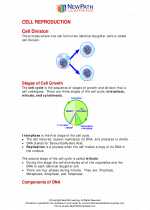 Cell Reproduction
Cell Reproduction  Activity Lesson
Activity Lesson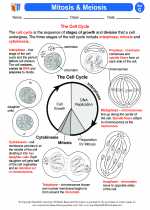 Mitosis & Meiosis
Mitosis & Meiosis  Worksheet/Answer key
Worksheet/Answer key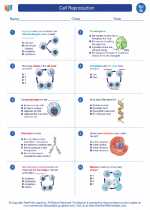 Cell Reproduction
Cell Reproduction  Worksheet/Answer key
Worksheet/Answer key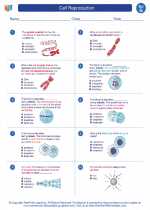 Cell Reproduction
Cell Reproduction  Worksheet/Answer key
Worksheet/Answer key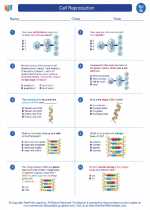 Cell Reproduction
Cell Reproduction  Vocabulary/Answer key
Vocabulary/Answer key Cell Reproduction
Cell Reproduction  Vocabulary/Answer key
Vocabulary/Answer key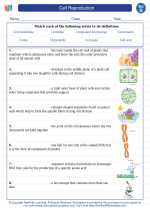 Cell Reproduction
Cell Reproduction  Vocabulary/Answer key
Vocabulary/Answer key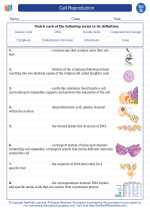 Cell Reproduction
Cell Reproduction  Vocabulary/Answer key
Vocabulary/Answer key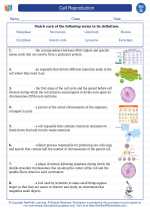 Cell Reproduction
Cell Reproduction  Vocabulary/Answer key
Vocabulary/Answer key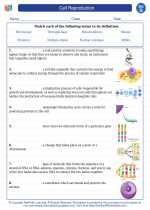 Cell Reproduction
Cell Reproduction  Vocabulary/Answer key
Vocabulary/Answer key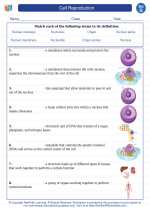 Cell Reproduction
Cell Reproduction  Vocabulary/Answer key
Vocabulary/Answer key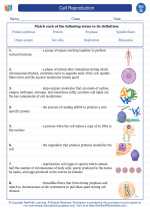 Cell Reproduction
Cell Reproduction  Vocabulary/Answer key
Vocabulary/Answer key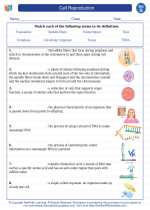 Cell Reproduction
Cell Reproduction 

 Activity Lesson
Activity Lesson
 Worksheet/Answer key
Worksheet/Answer key
 Worksheet/Answer key
Worksheet/Answer key
 Worksheet/Answer key
Worksheet/Answer key
 Vocabulary/Answer key
Vocabulary/Answer key
 Vocabulary/Answer key
Vocabulary/Answer key
 Vocabulary/Answer key
Vocabulary/Answer key
 Vocabulary/Answer key
Vocabulary/Answer key
 Vocabulary/Answer key
Vocabulary/Answer key
 Vocabulary/Answer key
Vocabulary/Answer key
 Vocabulary/Answer key
Vocabulary/Answer key
 Vocabulary/Answer key
Vocabulary/Answer key

The resources above cover the following skills:
LIFE SCIENCE
From Molecules to Organisms: Structures and Processes
Gather and synthesize information to explain how prokaryotic and eukaryotic cells differ in structure and function, including the methods of asexual and sexual reproduction.